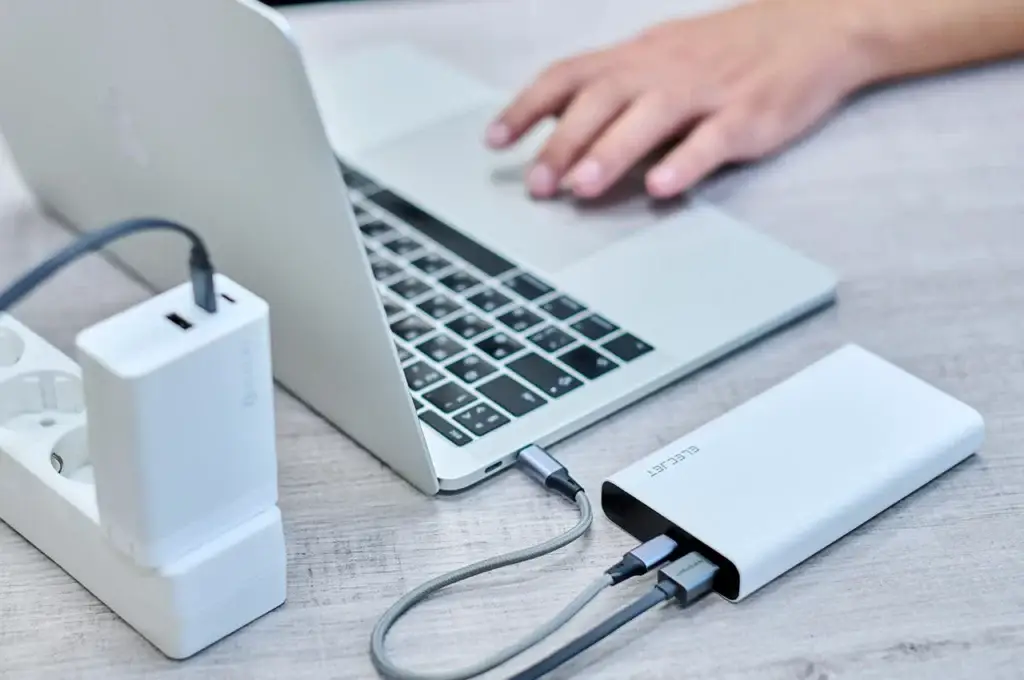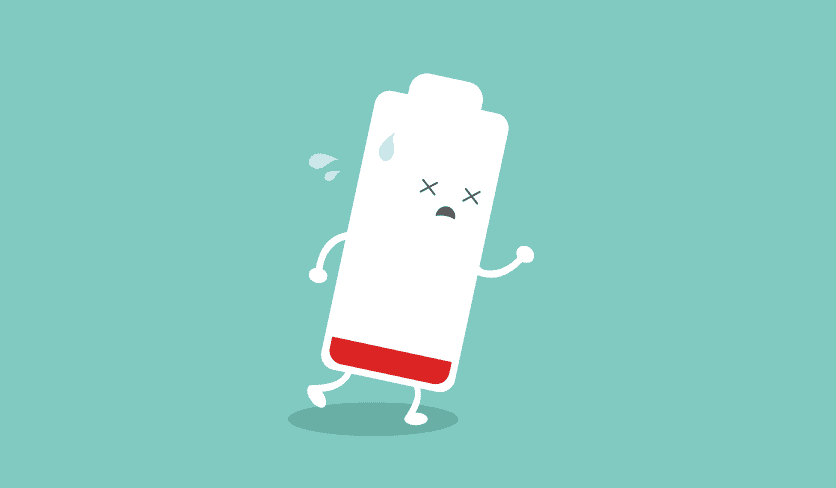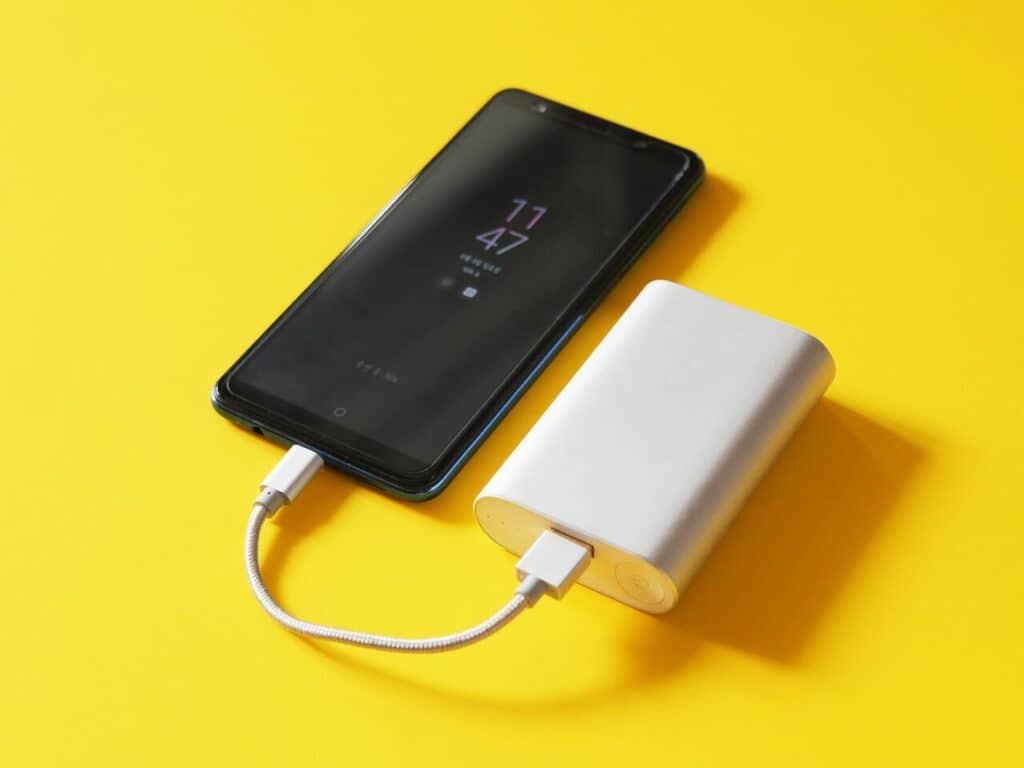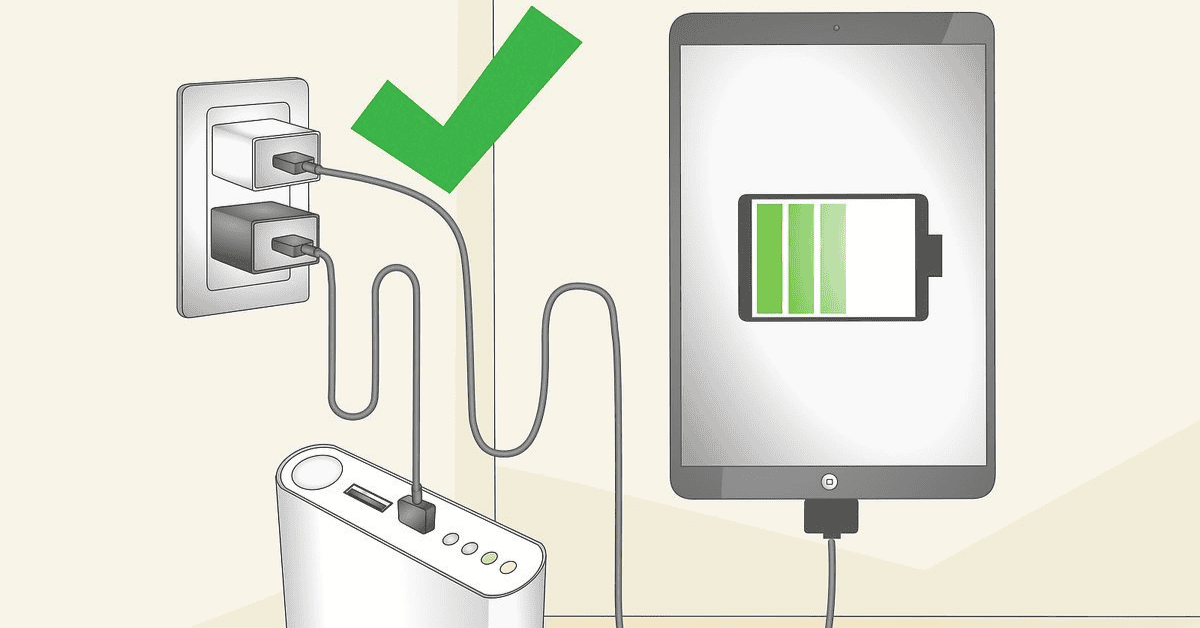The introduction of power banks has significantly increased your ability to charge your phone while on the go.
Having a portable charger in your bag could make a big difference in how your day turns out!
After all, you don’t want to be stuck with a dead phone if you’re waiting for an important business call, or need to view that extremely vital email while you’re traveling.
Sometimes, you might’ve even entertained whether it’s a good idea to charge your power bank while simultaneously charging your phone.
However, the question is:
Is this even possible (or safe)?
The answer?
It depends- on the portable charger, that is! Some power banks will have the capability to “charge while being charged”, so to speak, while others do not.
Whether it’s safe to do so again depends on whether the specific portable battery pack has been designed with that feature in mind!
If you find yourself with questions about the capability of your power bank to be plugged into a power source itself while charging your phone (and the safety of it all), keep reading our article below!
Can A Power Bank Charge And Be Charged At The Same Time?

In your quest to discover whether a power bank can charge and be charged at the same time, you may have found a few conflicting and confusing answers.
Some users swear that it just isn’t possible, while others claim they do it all the time! Well, here’s the answer:
Some power banks can charge other devices while they themselves are charging. However, the keyword here is “some”.
Not all portable battery packs have this feature! If you want to do this with your power bank you will need to check its capabilities before you make your purchase.
Before you even do that, there are some effects of charging both a portable charger and phone simultaneously which you may first want to consider.
The first thing that you will need to keep in mind is that if you charge both at the same time it will result in a longer charging time for both devices.
The reason for this is simple; you won’t be able to charge in fast-charging mode if that’s something that’s usually available for your phone!
Another side effect is that you will find the power bank can become hotter than usual.
This is because your portable battery temperature may rise above the safe range when it’s both discharging and receiving electrical power.
Ideally, the temperature of your bank shouldn’t exceed room temperature.
However, when you charge your device and another device simultaneously, the temperature can spike.
This is because an increased amount of electric current flows through the gadget- and a two-way flow at that, with power both coming in and also going out. This power will then keep flowing until both devices are fully charged.
Below are some of the things that you may want to know before you attempt to simultaneously charge your portable charger and mobile device:
1. Level Of Amp Output
As the saying goes: You cannot give when you do not have!
Amperage refers to the strength or capacity of an electronic gadget as measured in amperes.
The wall output unit of the charger needs to have more output amperage than that of the power bank.
So, before you plug in your power bank, it is essential to check the power rating on both your wall charger output and your power bank.
If the output amperage rating of your power bank is higher than what you have on your charger, the power bank won’t charge- no matter which device you connect to it.
2. Current
The current is similar to the amperage.
For a power bank to charge and discharge at once, the incoming current (input current) must be higher than the outgoing (discharging current).
3. Capacity
If you want to charge a phone with a power bank while charging, you need to ensure the energy capacity of the power bank is higher than the device you want to charge with it.
For instance, if your smartphone’s energy capacity is 6000mAH, a power bank of 5000mAH would not work.
To check if the energy rating of your phone’s battery and that of the power bank are compatible, you will need to compare the two.
To find this out your phone, go to Settings and select Battery. Alternatively, if the battery is removable, you will find the amperage written on the back!
Should I Drain My Power Bank Before Charging It?

Power bank batteries are similar to those found in smartphones, especially when it comes to charging and discharging.
Generally, it is better to recharge your battery before it is empty, and it is often recommended that you completely charge your power bank before you use it for the first time.
There is a good reason for this recommendation.
Voltage pressure increases at the two extremes of battery capacity when it is nearly filled or almost empty when you plug in a device.
Therefore, if you charge your power bank only when it drains completely, you will be exposing it to unnecessary voltage pressure.
For the ultimate longevity of your portable charger, try to charge it when it drops to about 30%.
Do Power Banks Stop Charging When Full?

Let’s wrap up by discussing what happens to a power bank when it hits total charge capacity.
Does it stop charging automatically?
Or, does it overcharge?
Overcharging is pretty detrimental for devices in general.
The scariest effect of all is how it can cause the affected devices to take in excess electric current.
When that happens, the temperature increases, and finally, a thermal runaway takes place. These occurrences will ultimately result in the life of your power bank being shortened.
Now, back to the question at hand: Do power banks stop charging when full?
Like every other electronic device, power banks on the market are made by a whole range of different manufacturers.
Furthermore, the functionalities of technology are continually being upgraded, and power banks are no different in this regard.
Most old power bank models do not stop charging on their own when they are full. With these older models, you will find that they overheat while charging.
The heat can even become intense at the end of the charge cycle! However, be assured that not all older models work this way, as some manufacturers were quick to introduce an auto-stop to the charging process.
The newer models of power banks are entirely different, with upgrades having tied up many loose ends when it comes to the devices’ safety.
New models of power banks have an inbuilt feature that makes them stop charging when they charge to full capacity.
This safety feature is called “smart circuitry”, and you can find it in all modern lithium-Ion batteries.
Smart circuitry works similarly to the smart circuit breaker that is commonly installed in households and buildings.
When you connect your charger to a power supply, it starts drawing electric currents immediately.
As the charging continues, the breaker monitors the current flow and it keeps an eye on the charging percentage. Once it hits 100%, it disconnects the flow and halts the charging process.
If, due to a fault or glitch, the smart circuitry cannot stop the charging, an alternative integrated circuit will then help to stop the flow of electric current into the battery.
In a nutshell, what determines whether a power bank will continue or stop charging after hitting full capacity is the presence or absence of smart circuitry- a prominent feature that distinguishes effectively between older and newer models.
In Conclusion
There are definitely some power banks out there that can charge and discharge power at once. However, as discussed in this article, not all models are capable of this.
A power bank that can support this kind of dual charging will have a higher amperage, greater energy capacity, and a higher current rating than the device you would like to charge.
Keep in mind that this action will consume more energy, and usually also increases the temperature of both components.
Additionally, both the power bank and the connected device will take more time to charge completely.
Therefore, if you do have to use your power bank while charging it, our best advice would be to make sure it doesn’t become a consistent habit!
Portable chargers are one of them. Want to know what the other 14 Most Essential Smartphone Accessories are this year? Click HERE to find out!
